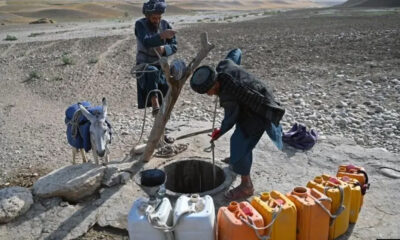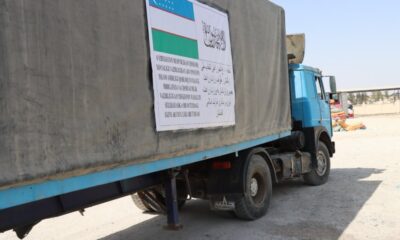Health
Medicines still being smuggled into Afghanistan: union
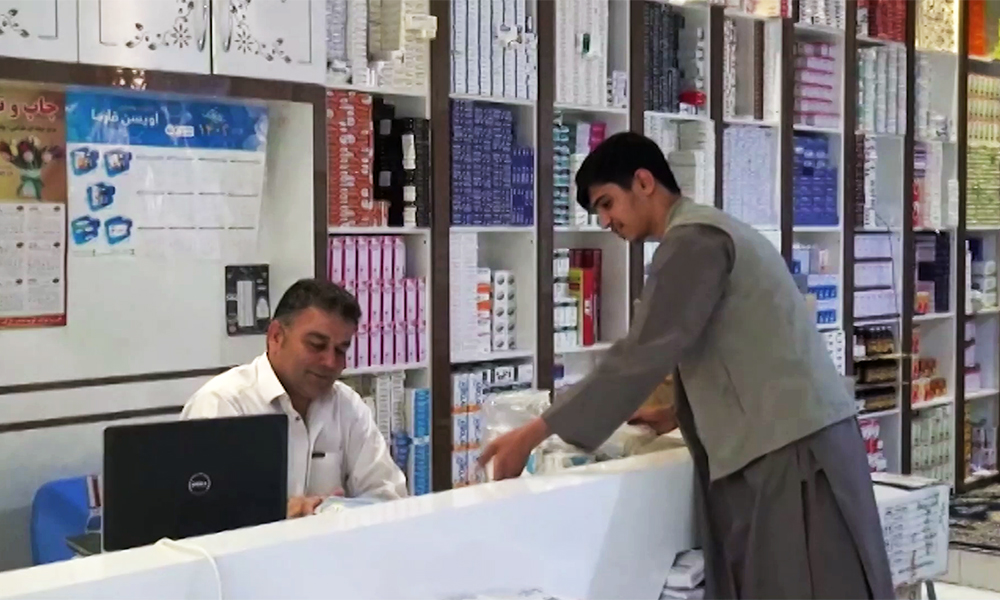
The Pharmaceutical Services Union in Herat says that medicines are still being smuggled into Afghanistan despite efforts made to clamp down on the practise.
According to union officials, these drugs are identifiable, so the price difference is noticeable in the markets.
Consumers meanwhile have complained that some pharmacies are charging exorbitant prices for medicines.
“Instead of cooperating with the people, it is noticed that the price of medicine has increased in pharmacies, or companies supply the same medicine under their own name,” Ahmad Fardin Jami, a resident of Herat, says.
“The Directorate of Public Health should have a regular plan to monitor pharmacies,” Abdul Wahid Mufaker, a resident of Herat, says.
The Union of Pharmaceutical Services in the western zone believes that the pharmaceutical market is still not fully controlled, that drug smuggling continues, and different companies import drugs with special marks, so the price difference in the drug market is noticeable.
“The laws are still not implemented 100%. The facilities of the relevant bodies are not so extensive to control fully. There are pharmaceutical unions all over Afghanistan, and this chain of unions controls the market to some extent, but the unions are not executive offices,” Abdul Karim Shirzad, the head of the Pharmaceutical Services Union in western zone, says.
However, the Public Health Directorate emphasized that serious actions have been taken against those who overcharged or had license issues.
“The Public Health Directorate has always matched the documents that the drug company bought with the price it sells in its monitoring programs, but we also witnessed cases where violations indicating instances of overcharging have taken place,” Mohammad Asif Kabir, Deputy Director of Public Health in Herat, says.
Some medicine sellers say that prices in the global markets are changing.
“Currently, the drugs that are sold in the market are original and high-quality drugs from reputable international companies,” Fereydoun Tokhi, the lawyer of the Pharmacists Association of Herat city, says.
“There are two arguments here, one is that people say that the drug has become expensive. The next is that if we consider globally, raw materials have become expensive all over the world,” Khalid Ahmad Ghafouri, a drug importer, says.
There are hundreds of pharmacies and drug importing companies in Herat, and the issue of price difference has always been a serious problem for the people.
Health
Japanese charity Peshawar-Kai to resume leprosy treatment in Afghanistan
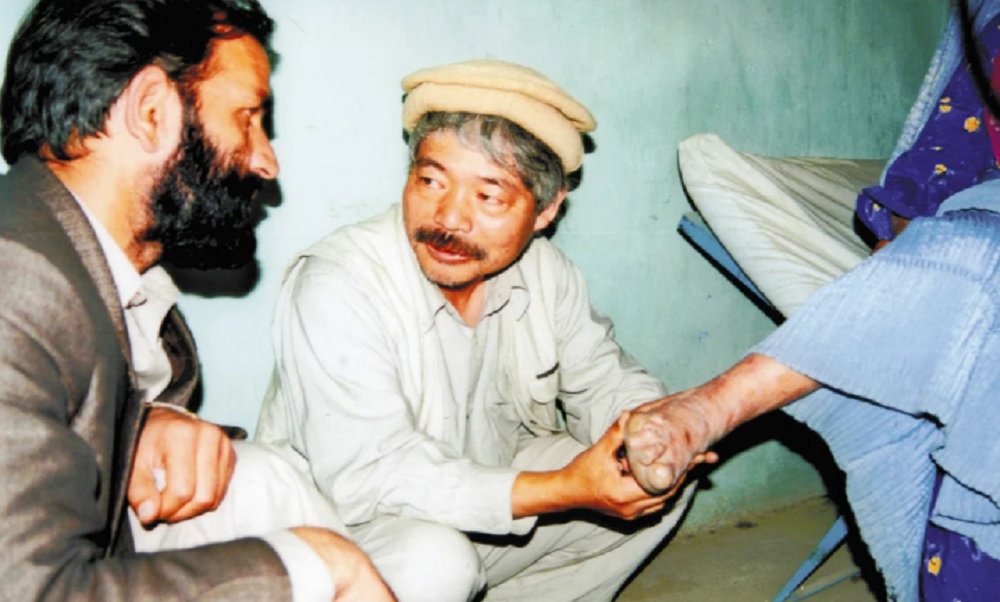
Peshawar-Kai, a Japanese aid organization, has announced that it will resume leprosy treatment in Afghanistan after around 15 years.
The charity will treat leprosy patients in memory of its former head Tetsu Nakamura, Japan’s Yomiuri Shimbun newspaper reported.
The NGO will begin its leprosy treatment program in Afghanistan this year.
It will treat patients in areas such as Nangarhar province by providing medicines, training staff and sending mobile treatment teams.
Leprosy, also known as Hansen disease, is a chronic infectious disease caused mainly by a type of bacteria called Mycobacterium leprae. The disease affects the skin, the peripheral nerves, the mucosa of the upper respiratory tract and the eyes.
Nakamura started treated leprosy patients in Pakistan in the 1980s and then began extensive activities, including the construction of water supply canals in Afghanistan.
The Japanese aid worker was killed in an armed attack in Jalalabad in December 2019.
Health
WHO confirms second Polio case in Afghanistan
The Islamic Emirate of Afghanistan’s Public Health Ministry has not yet commented.
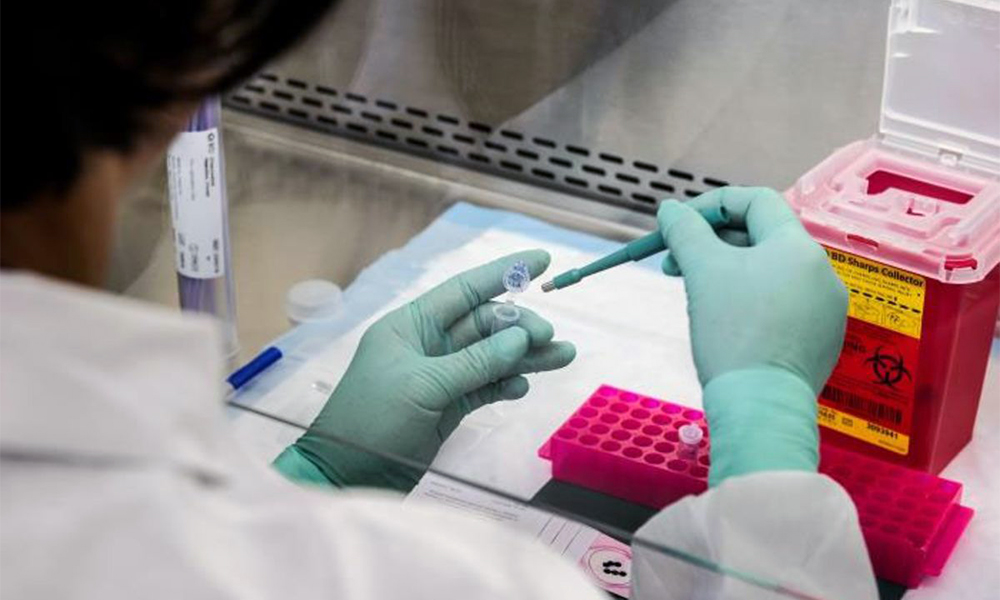
The World Health Organization (WHO) has confirmed the second case of polio in Afghanistan for the year 2025.
The case was identified in March in Helmand province.
This follows the first reported case in the Bala Murghab district of Badghis province, where a five-year-old girl was diagnosed with the virus.
Additionally, 18 environmental samples testing positive for the polio virus have been reported in provinces including Kandahar, Helmand, Kabul, Laghman, Nangarhar, and Zabul.
Afghanistan and Pakistan remain the only countries where polio has not been eradicated.
Polio is a viral disease for which there is no cure, and vaccination is the only way to protect children from it.
The Islamic Emirate of Afghanistan’s Public Health Ministry has not yet commented.
Health
Afghanistan strengthens healthcare system through collaborations with UNDP and UNFPA
Among those who Jalali met with were Stephen Rodriques, UNDP representative to Afghanistan, and Koffi Kwabena Asante, the UNFPA representative to Afghanistan.

In a series of high-level meetings Mawlawi Noor Jalal Jalali, Minister of Public Health of the Islamic Emirate of Afghanistan (IEA), has engaged with key international partners in a bid to bolster Afghanistan’s healthcare infrastructure.
Among those who Jalali met with were Stephen Rodriques, United Nations Development Programme’s (UNDP) representative to Afghanistan, and Koffi Kwabena Asante, the United Nations Population Fund (UNFPA) representative to Afghanistan.
Discussions between them highlighted the importance of collaborative efforts to address the country’s most pressing health challenges and ensure long-term, sustainable improvements.
The first meeting with Rodriques focused on the deployment of solar energy solutions to power healthcare centers across Afghanistan, particularly in remote and underserved areas.
Both parties explored the criteria for selecting appropriate sites for these solar-powered initiatives, underscoring the critical role of renewable energy in enhancing healthcare access.
The dialogue also covered integrated approaches to combat endemic diseases such as malaria, tuberculosis, and HIV/AIDS.
Jalali emphasized the importance of effective disease control, which, he noted, requires precise coordination and operational transparency to ensure impactful service delivery.
In response, Rodriques reaffirmed UNDP’s commitment to maintaining transparency and accountability in its interventions, pledging continued support for strengthening Afghanistan’s healthcare system.
The second round of discussions with UNFPA representatives Koffi Kwabena Asante and Andrew Saberton revolved around revitalizing the Afghan health sector, securing sustained financial support, and optimizing aid management.
Jalali stressed the need for a strategic overhaul of resource allocation to optimize international assistance and align efforts with national health priorities.
The discussions also delved into transitioning mobile health teams into permanent centers to expand healthcare access, as well as enhancing service delivery in line with the ministry’s health policy.
Jalali reiterated the importance of transparency in resource management to ensure the efficacy and sustainability of healthcare services.
Saberton commended the Afghan government’s commitment to these principles and assured that UNFPA would continue to provide vital resources to improve health outcomes in Afghanistan.
Both meetings highlighted the shared vision of fostering greater transparency, accountability, and long-term sustainability in Afghanistan’s healthcare system.
Through strategic collaborations with UNDP and UNFPA, Jalali aims to drive impactful reforms that will improve healthcare access and outcomes across the country.
The commitment of both organizations to supporting Afghanistan’s healthcare sector underscores the importance of international partnerships in tackling complex health challenges and ensuring the well-being of the Afghan people.
-

 Regional5 days ago
Regional5 days agoIndia dismisses report of Pakistan downing jets as “disinformation”
-

 Sport5 days ago
Sport5 days agoAriana Television to broadcast 4th edition of Afghanistan Futsal Premier League
-

 Latest News4 days ago
Latest News4 days agoTAPI pipeline to reach Herat by end of 2025: Ministry
-
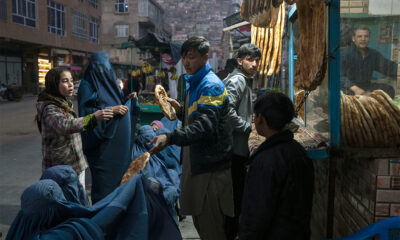
 Latest News5 days ago
Latest News5 days agoNearly one-third grapple with hunger in Afghanistan: WFP
-

 Sport4 days ago
Sport4 days agoIPL 2025: Dharamsala match abandoned due to security concerns
-

 Latest News5 days ago
Latest News5 days agoUzbekistan, Poland discuss cooperation over Afghanistan
-

 Regional4 days ago
Regional4 days agoIndia says military stations attacked by Pakistan drones and missiles
-

 Latest News4 days ago
Latest News4 days agoOne dead, dozens injured as powerful storm strikes Jalalabad, Afghanistan










